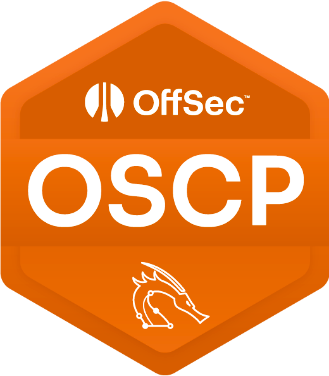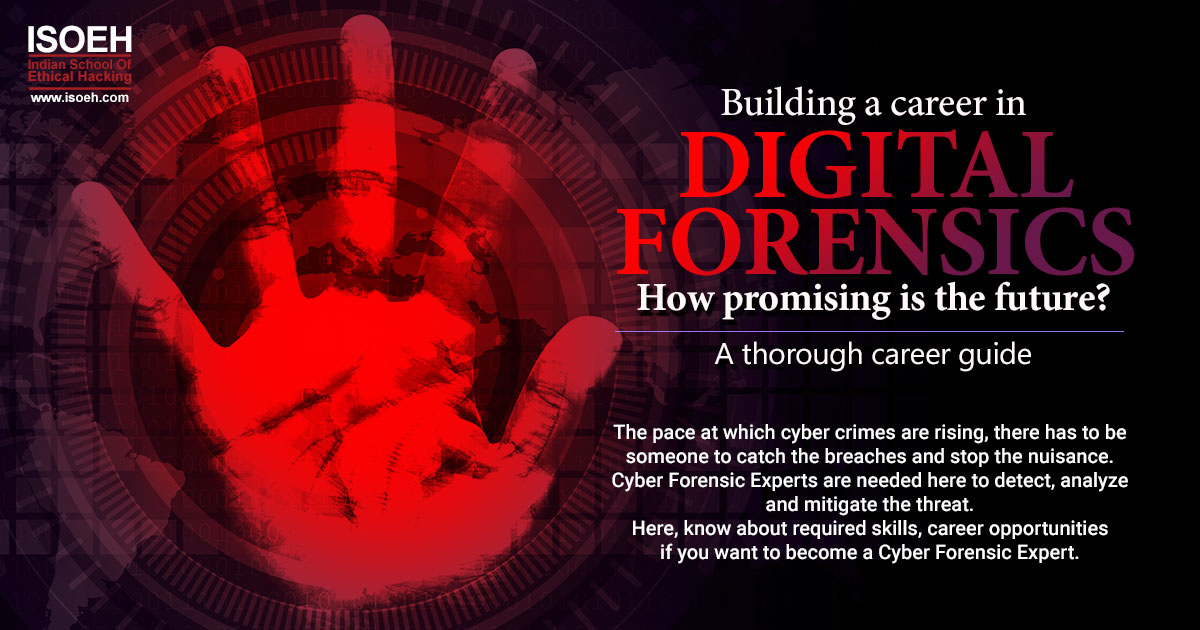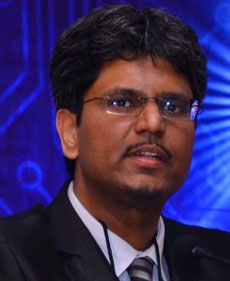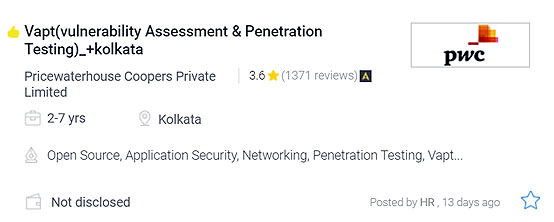Indian School of Ethical Hacking is the only OffSec Authorised Partner in Eastern India.
The OffSec Certified OSCP - OffSec Course (PEN-200) sets the industry standard by immersing learners in the world of ethical hacking. Dive into penetration testing methodologies, tools, and techniques in a hands-on, self-paced environment.
Completing this course and passing the exam will earn you the prestigious OffSec Certified Professional (OSCP) certification. This certification is highly respected, requiring holders to demonstrate their ability to successfully attack and penetrate various live machines in a secure lab environment.
The OSCP is renowned for its technical depth, making it stand out among other ethical hacking certifications. It's one of the select few that demands practical evidence of your penetration testing skills.
Ready to Become a Cybersecurity Pro with OSCP (PEN 200)?
 Welcome to PEN 200: Penetration Testing with Kali Linux, exclusively offered by the Indian School of Ethical Hacking (ISOEH), the only OffSec authorized partner in Eastern India. This rigorous course is designed to transform beginners into proficient penetration testers through a detailed exploration of the ethical hacking landscape using Kali Linux, the premier tool for cybersecurity experts.
Welcome to PEN 200: Penetration Testing with Kali Linux, exclusively offered by the Indian School of Ethical Hacking (ISOEH), the only OffSec authorized partner in Eastern India. This rigorous course is designed to transform beginners into proficient penetration testers through a detailed exploration of the ethical hacking landscape using Kali Linux, the premier tool for cybersecurity experts.
Course Overview
 PEN 200 initiates such an in-depth journey where you will familiarize yourself with the course structure and our unique approach to learning. We prepare you from day one with the mindset and strategies essential for success in penetration testing. The course then progresses into specialized modules where hands-on skills are developed. Offensive Security Certified Professional (OSCP, also known as OffSec Certified Professional) is an Ethical Hacking global certification that teaches penetration testing methodologies and the use of the tools included with the Kali Linux distribution.
PEN 200 initiates such an in-depth journey where you will familiarize yourself with the course structure and our unique approach to learning. We prepare you from day one with the mindset and strategies essential for success in penetration testing. The course then progresses into specialized modules where hands-on skills are developed. Offensive Security Certified Professional (OSCP, also known as OffSec Certified Professional) is an Ethical Hacking global certification that teaches penetration testing methodologies and the use of the tools included with the Kali Linux distribution.
In this course, you will learn about Kali Linux Basics, Command Line and Bash Scripting, essential tools, Information Gathering, Vulnerability Scanning, Web Application Attacks, Client-Side Attacks, Finding and Fixing Public Exploits, File Transfers, Anti-Virus Bypass, Privilege Escalation, Password Attacks, Port Redirection and Tunnelling, Active Directory Attacks, Metasploit Framework, PowerShell Empire, Assembling the Pieces. You will be familiar with the term “Reconnaissance”. Let me introduce you to this word in a nutshell. Identifying the potential target within the environment is a critical part of the operations as the reconnaissance and network mapping process will provide insights about how big the network is or the number of the systems within the environment and then hunt for the vulnerable systems after being identified and evaluated. You will get to know about Password Spray attacks, Kerberoast attacks, AS-REProast attacks, Pass-The-Hash attacks (PTH) and many more. The more interesting topic is Active Directory (AD), which is a directory service for Windows domain networks environment created by Microsoft that contains critical information about the users, systems, or objects within the organization. This directory service has become a potential target going after by malicious threat actors during offensive operations. Port forwarding can be defined as the implementation of Network Address Translation to send requests to communicate from one IP address and port number to another when you are located outside the network. It transmits the traffic from the outside network to the local network.
Tunnelling can be defined as a protocol that lets secure passage of data from one network to another by allowing the communication of a private network to be sent across a public network, by making use of encapsulation. Tunnelling has proven to be highly beneficial as it lets an organization create their Virtual Private Network with the help of the public network and provides huge cost benefits for users on both ends.
Throughout this course, you will learn about how to find and exploit Linux vulnerabilities and misconfigurations to gain a root shell, web application assessment methodology, vulnerability scanning and many more exciting things with Practical guidance that will help you to grow as a cyber security professional in the Tech industry in 2024 and beyond.
Why Do OSCP Certification?
Gain exclusive access to recently retired
OSCP exam machines Practice
and refine your penetration testing techniques
Stay Ahead with the
Latest Tools
Duration
46 Hours – 2 classes per week
Eligibility
- Complete NPT1/ Get NPT1 Certification
- Complete WAPT1/ Get WAPT1 Certification
Course Fees
Class Room Training
Rs.2,20,000/-
Inclusive of all taxes and including exam and training fee and one mock OSCP exam
Online Training
Rs.2,50,000/-
Rs.2,20,000/-
Inclusive of all taxes and including exam and training fee and one mock OSCP exam
What You Will Get?
46 Hours
of in-depth training by the best cyber security experts
Industry-Designed Study Materials
OSCP
Certificate of Completion after examination and alumni status
Course Benefits:
- Cost effectiveness
- Industry accepted
- Global recognition
Course Details
- The duration of the course is 46 hours at 2 hours per week
- The course fee is Rs. 2,20,000/- for classroom and Rs. 2,50,000/- Rs. 2,20,000/- for online
- The curriculum is taught combining theory and practice
- Welcome to PWK (Day 1)
- How to Approach the Course (Day 1)
- Summary of PWK Learning Modules (Day 1)
- The Practice of Cybersecurity (Day 2)
- Threats and Threat Actors (Day 2)
- Threats and Threat Actors (Day 2)
- The CIA Triad (Day 2)
- Security Principles, Controls, and Strategies (Day 2)
- Cybersecurity Laws, Regulations, Standards, and Frameworks (Day 2)
- Career Opportunities in Cybersecurity (Day 2)
- Learning Theory (Day 3)
- Unique Challenges to Learning Technical Skills (Day 3)
- OffSec Methodology (Day 3)
- Case Study: chmod -x chmod (Day 3)
- Tactics and Common Methods (Day 3)
- Tactics and Common Methods (Day 3)
- Advice and Suggestions on Exams (Day 3)
- Practical Steps (Day 3)
- Understanding Note-Taking (Day 4)
- Understanding Note-Taking (Day 4)
- Writing Effective Technical Penetration Testing Reports (Day 4)
- The Penetration Testing Lifecycle (Day 5)
- The Penetration Testing Lifecycle (Day 5)
- Passive Information Gathering (Day 5)
- Active Information Gathering (Day 5)
- Vulnerability Scanning Theory (Day 6)
- Vulnerability Scanning with Nessus (Day 6)
- Vulnerability Scanning with Nessus (Day 6)
- Vulnerability Scanning with Nmap (Day 6)
- Web Application Assessment Methodology (Day 7)
- Web Application Assessment Tools (Day 7)
- Web Application Enumeration (Day 7)
- Web Application Enumeration (Day 7)
- Cross-Site Scripting (XSS) (Day 7)
- Directory Traversal (Day 8)
- File Inclusion Vulnerabilities (Day 8)
- File Upload Vulnerabilities (Day 8)
- File Upload Vulnerabilities (Day 8)
- Command Injection (Day 8)
- SQL Theory and Database Types (Day 9)
- Manual SQL Exploitation (Day 9)
- Manual and Automated Code Execution (Day 9)
- Target Reconnaissance (Day 10)
- Exploiting Microsoft Office (Day 10)
- Abusing Windows Library Files (Day 10)
- Getting Started (Day 11)
- Online Exploit Resources (Day 11)
- Offline Exploit Resources (Day 11)
- Exploiting a Target (Day 11)
- Fixing Memory Corruption Exploits (Day 12)
- Fixing Web Exploits (Day 12)
- Antivirus Evasion Software Key Components and Operations (Day 13)
- AV Evasion in Practice (Day 13)
- Attacking Network Services Logins (Day 14)
- Password Cracking Fundamentals (Day 14)
- Working with Password Hashes (Day 14)
- Enumerating Windows (Day 15)
- Leveraging Windows Services (Day 15)
- Abusing other Windows Components (Day 15)
- Enumerating Linux (Day 16)
- Exposed Confidential Information (Day 16)
- Insecure File Permissions (Day 16)
- Insecure System Components (Day 16)
- Insecure System Components (Day 16)
- Port Forwarding with *NIX Tools (Day 17)
- SSH Tunnelling (Day 17)
- Port Forwarding with Windows Tools (Day 17)
- Tunnelling Through Deep Packet Inspection (Day 18)
- Getting Familiar with Metasploit (Day 19)
- Using Metasploit Payloads (Day 19)
- Performing Post-Exploitation with Metasploit (Day 19)
- Automating Metasploit (Day 19)
- Active Directory Manual Enumeration (Day 20)
- Manual Enumeration Expanding our Repertoire (Day 20)
- Active Directory Automated Enumeration (Day 20)
- Understanding Active Directory Authentication (Day 20)
- Performing Attacks on Active Directory Authentication (Day 20)
- Active Directory Lateral Movement Techniques (Day 20)
- Active Directory Persistence (Day 20)
- Enumerating the Public Network (Day 20)
- Attacking webserver (Day 20)
- Gaining Access to the Internal Network (Day 20)
- Enumerating the Internal Network (Day 20)
- Attacking the Web Application on internal server (Day 20)
- Gaining Access to the Domain Controller (Day 20)
Hacking Tutorials
Read All Tutorials »
Building a career in Digital Forensics - How promising is the future? A thorough career guide
Read Details »Hacking Videos
Explore All Videos »How to Hiding Your Secret File using Steganography?
View On Youtube »Enroll Now
Fields marked with * are mandatory.
Job Prospects & Job Sources
Profiles that count for OSCP Certified Individuals include:
- Penetration Testers: Break into computer systems, networks, or applications to find and fix vulnerabilities.
- Ethical Hackers: Use hacking skills for good to identify and fix security vulnerabilities.
- Information Security Consultant: Provide expert advice on security measures and solutions.
- Security Testers: Evaluate the security of systems to identify vulnerabilities.
- Security Analysts: Monitor computer networks for security threats or unauthorized users.
- Security Engineers: Design and build secure systems and networks.
- Network Server Administrators: Manage and maintain network servers and related systems.
- Firewall Administrators: Manage and configure firewalls to protect networks from unauthorized access.
- System Administrators: Manage and maintain computer systems and networks.
- Risk Assessment Professionals: Identify and assess risks to an organization's information and assets.
The average salary of an OSCP-certified IT employee in India is Rs 18 lakhs annually.
FAQs
- Learn to Identify Targets: Use information-gathering techniques to identify and enumerate targets running various operating systems and services.
- Scripting Skills: Develop basic scripts and tools to aid in the penetration testing process.
- Exploit Code Analysis: Analyze, correct, modify, cross-compile, and port public exploit code.
- Attack Techniques: Conduct remote, local privilege escalation, and client-side attacks.
- Web Application Security: Identify and exploit XSS, SQL injection, and file inclusion vulnerabilities in web applications.
- Network Pivoting: Leverage tunnelling techniques to pivot between networks.
- Problem-Solving Skills: Develop creative problem-solving and lateral thinking skills.
7 days doubt clearing session.
Yes, you can appear for a mock OSCP exam.
Member of:











